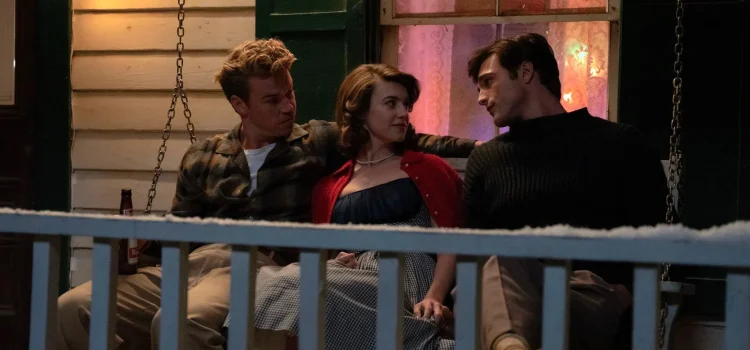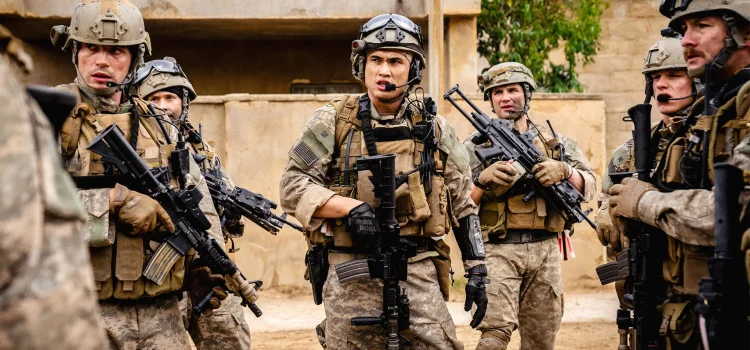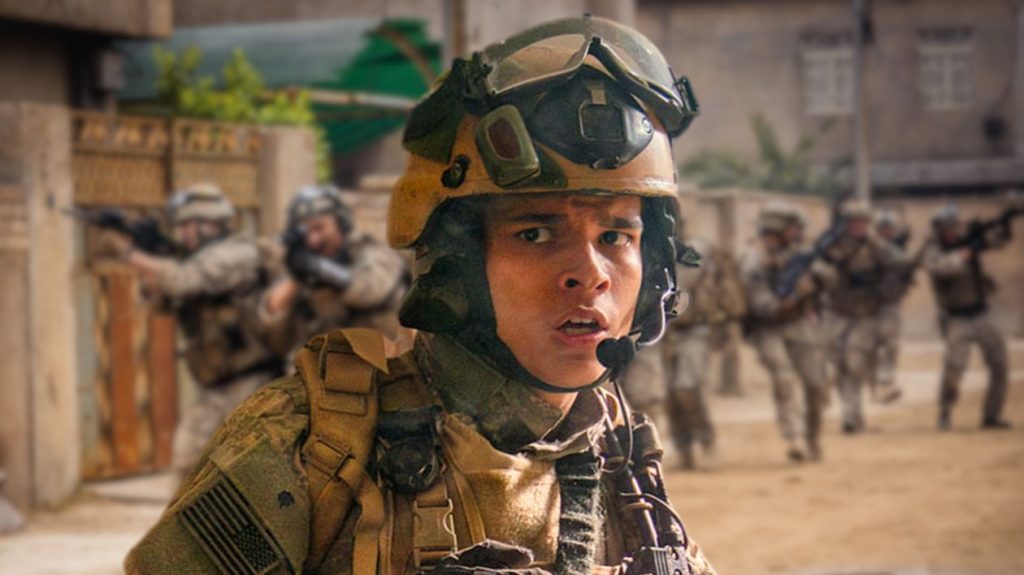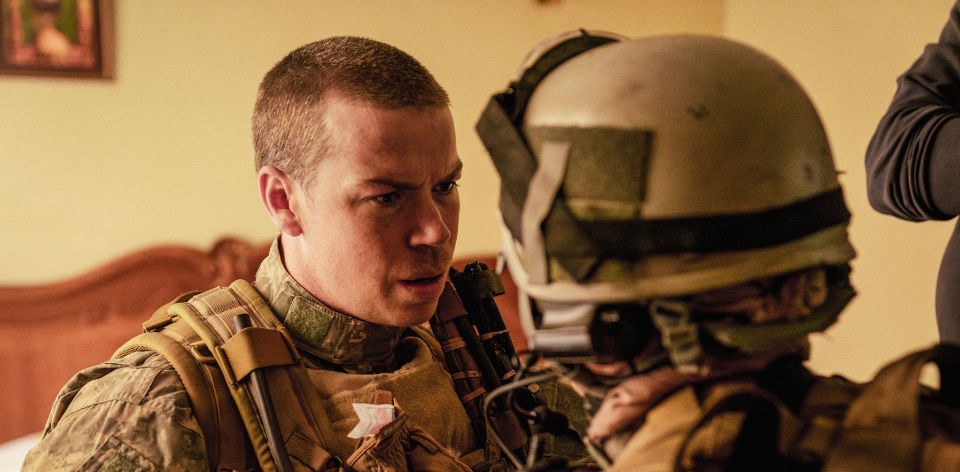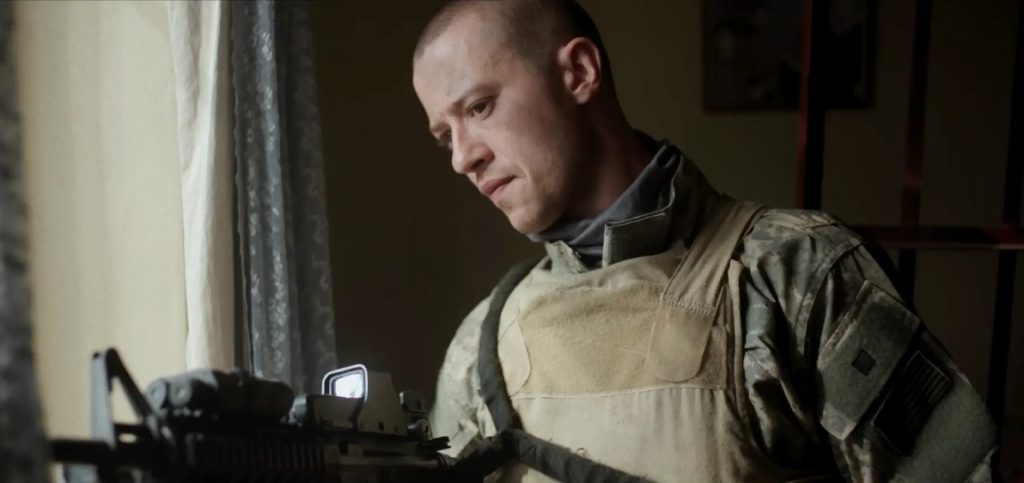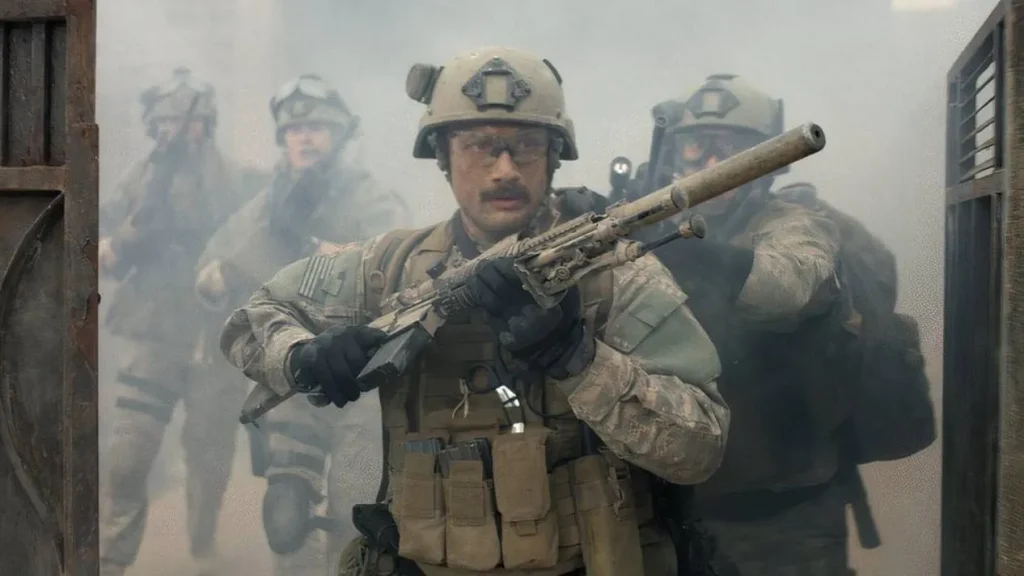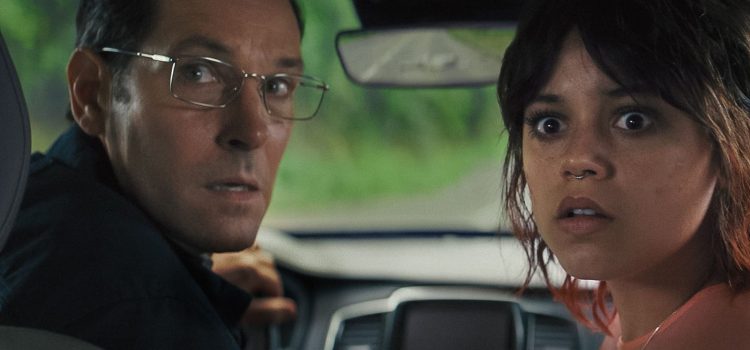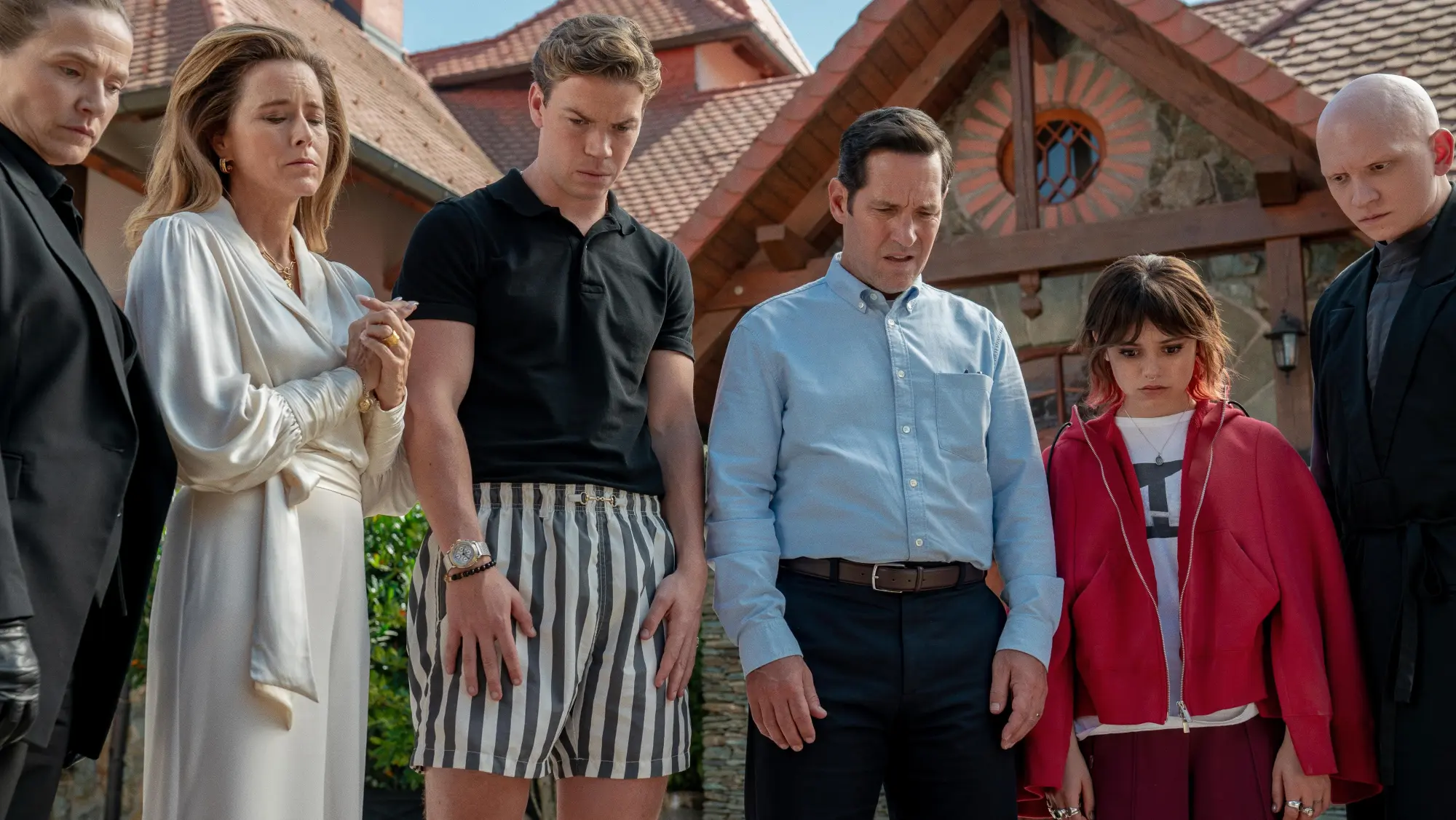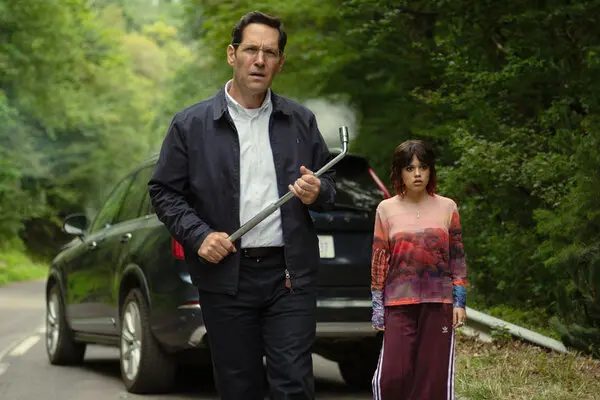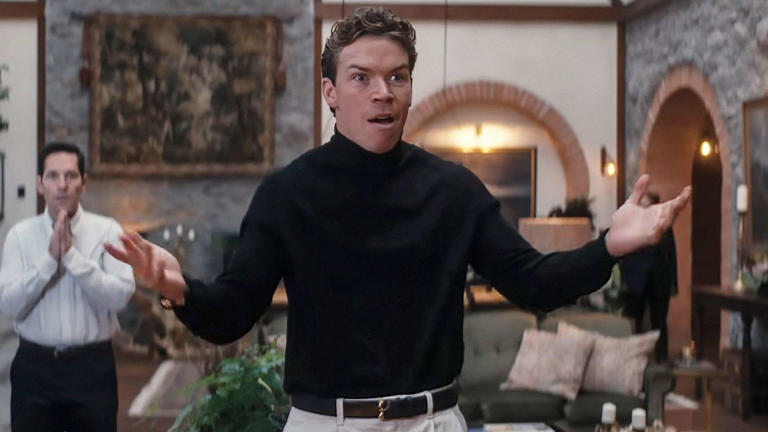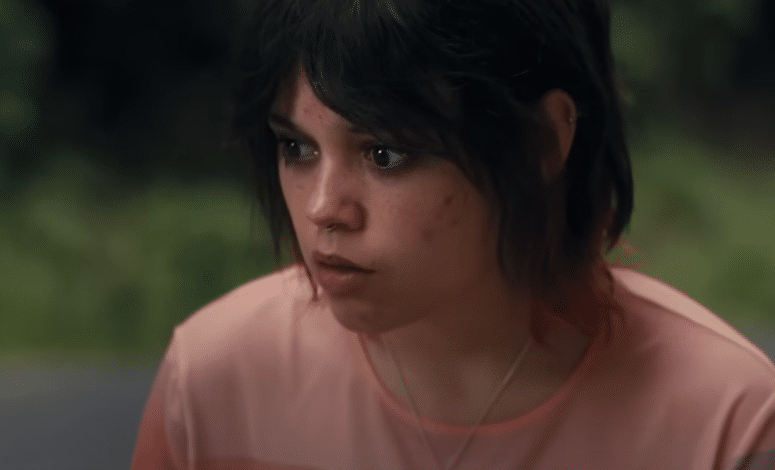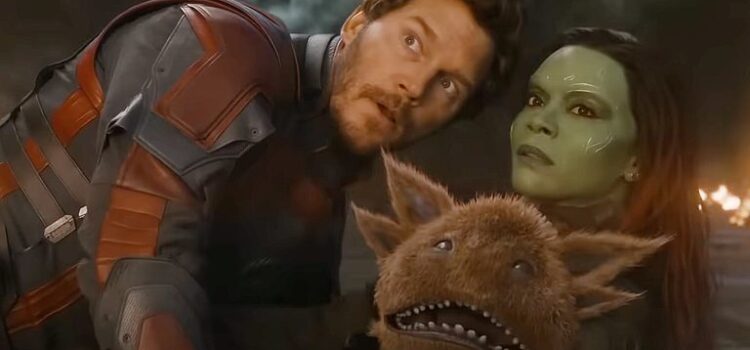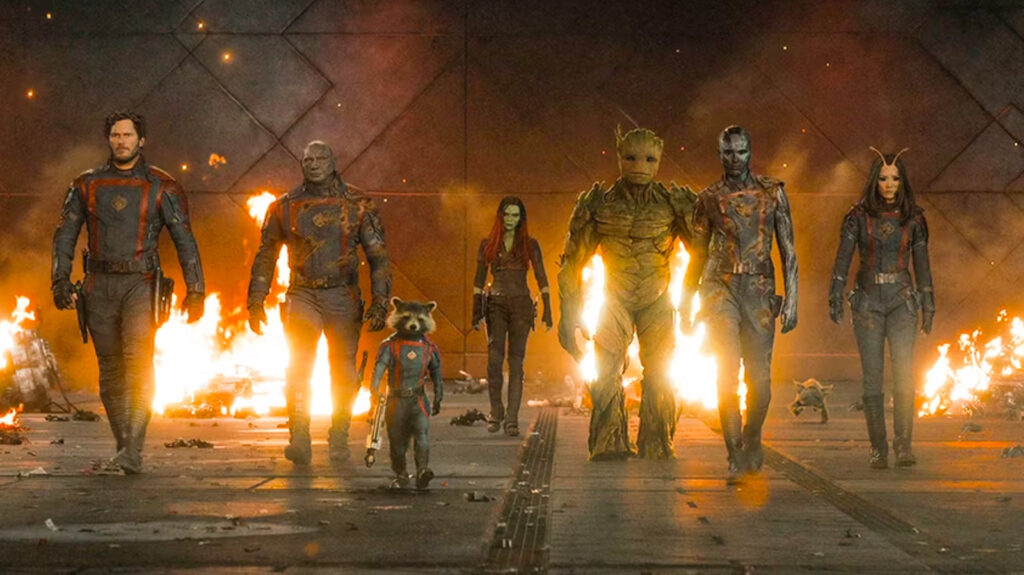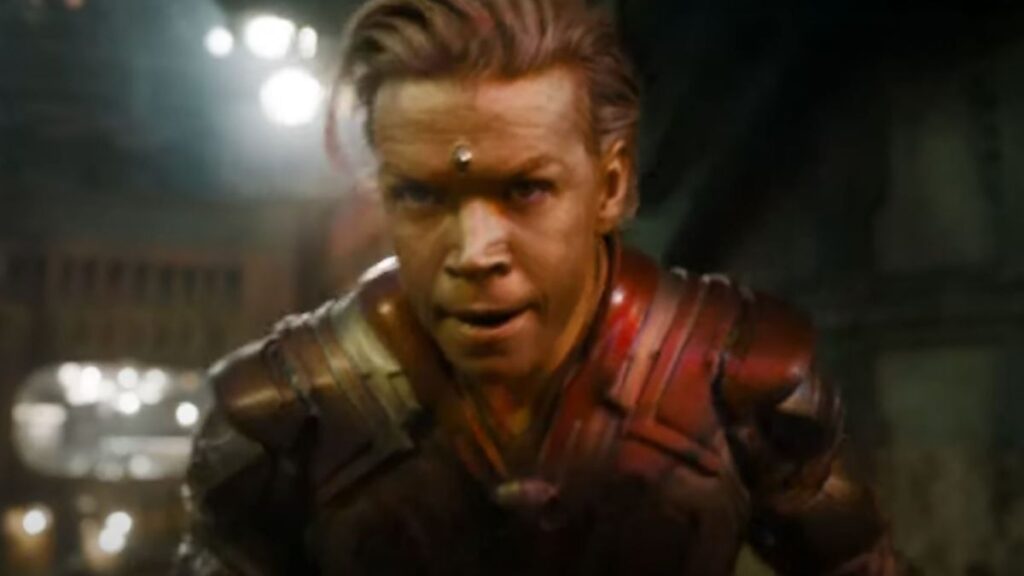By Lynn Venhaus
Pretty people and sun-dappled scenery wind up being ineffective in a shallow head-scratcher, “On Swift Horses,” a stagnant 1950s melodrama heavy on turgid soap opera and light on authentic emotion.
Two card sharks, a freedom-yearning woman from Kansas, and a traditional breadwinner in the 1950s seek the suburban American Dream after the Korean War. While their lives intersect, they are actually very far apart in their wants, needs and desires.
Trying to imitate Douglas Sirk’s lush films from that era, director Daniel Minahan’s queer period piece addresses how homosexuals had to remain closeted during a very repressed and cookie-cutter time but fails to connect in any meaningful way.
An example of style over substance, this is the kind of film where chain-smoking cigarettes substitute for pensive thoughts and inner torment. And they all live in the shadows.
Sirk, who made “Magnificent Obsession,” “All That Heaven Allows,” “Written on the Wind,” and “Imitation of Life” from 1954 to 1959, captured attractive people who were trapped by social conditions, and his overwrought stories appealed because his filming featured splendid cinematic set pieces, and matinee idols like Rock Hudson and Lana Turner.
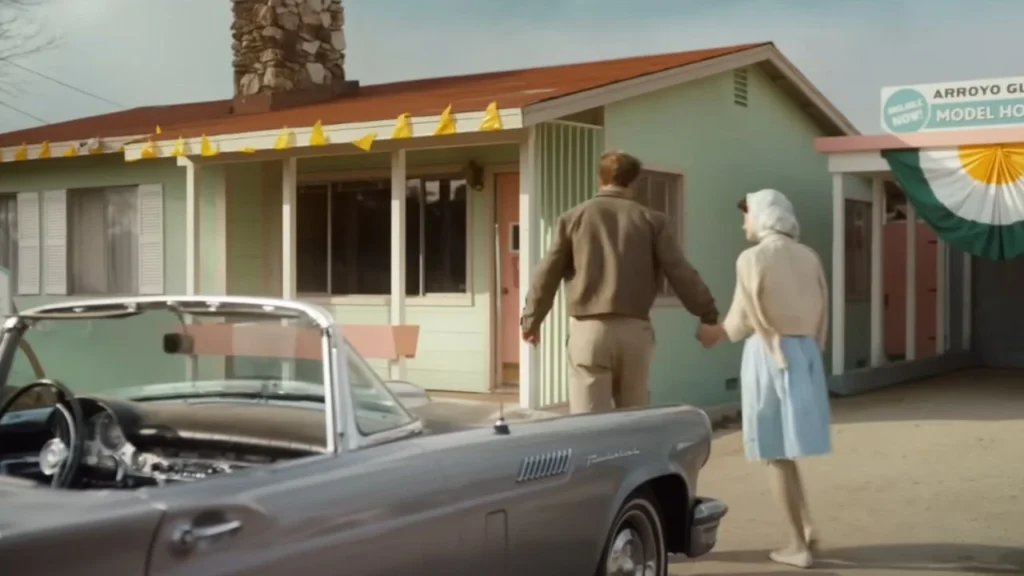
With such well-regarded performers as Daisy Edgar-Jones, Jacob Elordi and Will Poulter in what you may think is a seductive love triangle (trailer is a misdirect), one hoped they’d make us care about their journeys, but the story fails to provide reasons to be interested in what happens.
The trio is built up to appear “longing,” only they smolder and do not ignite. This disjointed adaptation of Shannon Pufahl’s 2019 novel by screenwriter Bryce Kass is overstuffed, not satisfying with basics. Neither did his lackluster “Lizzie” in 2018, which did not go far enough in fleshing out accused ax murderer Lizzie Borden.
Sure, they are a tempting pair, Elordi and Edgar-Jones, but do their character’s mutual connection benefit either? They spend most of their time in separate turmoil, with only a few scenes together.ccc
Oh, the trio try for big emotions, but it’s dialed down, as they speak in hushed tones and move around in scenes lit in such moody, murky atmospheres that it is almost too dark, so that is aggravating. Now, the stylish costumes designed by Jeriana San Juan, and distinct make-up and hairstyles are fabulous, but that can’t be the only selling point.
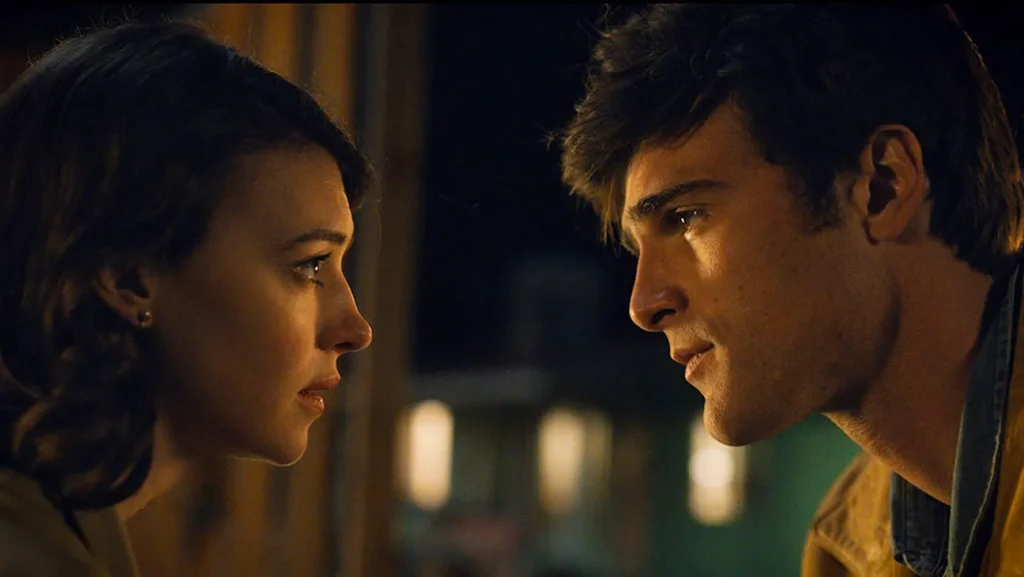
Muriel (Edgar-Jones) chafes at convention – doomed to be a typical wife in post-war America although she reluctantly attempts to fit in — while brothers Lee (Poulter) and Julius (Elordi) are Korean War veterans. The film starts in 1952 but it’s not clear how much time passes.
These young adults have different goals and desires, but fumble badly in their communication with each other. Lee talks in code about his wayward, secretive brother Julius who is always flirting with the wild side. “He has passions of his own. He’s just not like us,” he tells his wife.
The handsome Julius is a smooth gambler and gay hustler who falls in love with Henry (Diego Calva) while working in Las Vegas. Much of the interaction doesn’t feel genuine, and lack of convincing chemistry is an issue.
However, Elordi and Edgar-Jones have a spark when Julius and Muriel meet, becoming pen pals and share some, but not all, of their secrets. Don’t think this is going anywhere because it’s not.
At the diner she works at, Muriel overhears customers talking about their picks for the racetrack, so she starts playing the ponies with those tips. It’s a thrill for her to win and live a double life, stashing away the cash without her husband’s knowledge.
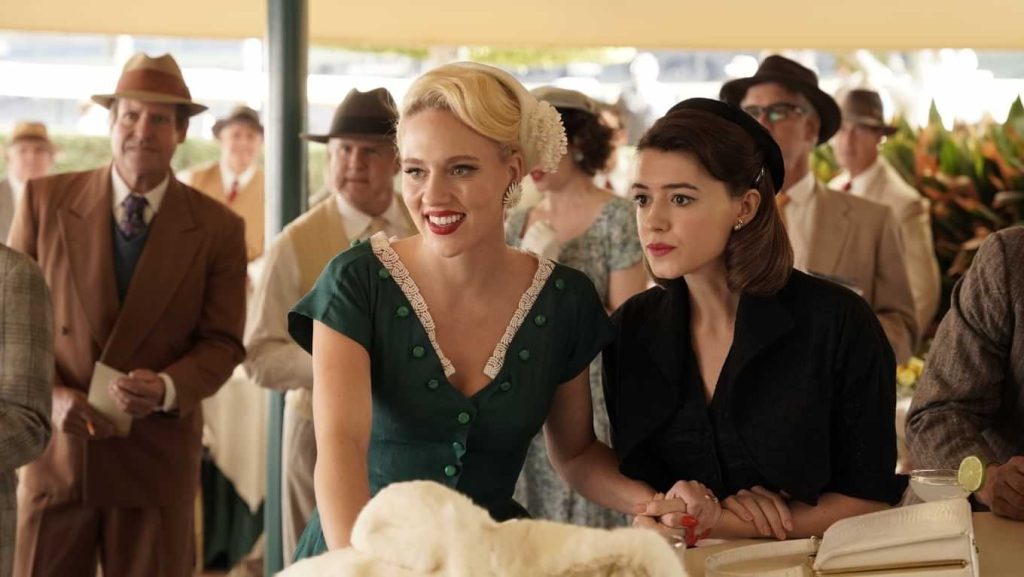
Lee, a total straight arrow who loves his wife and desperately wants the fantasy suburban life including a ranch house in a subdivision that signals middle-class prosperity. Developers are buying up farms and fields in San Diego for the “Baby Boom.”
One of the neighboring farms where Muriel purchases eggs and takes a shine to olives – and the woman selling them, Sandra (Sasha Calle). They become entangled in a clandestine affair.
Those hiding secrets are on a collision course for crash-and-burns, but whether you want to invest in their mess depends on how impatient you feel, for the pace is sluggish and resolutions are prolonged. And why does it take nearly 2 hours to tell this insipid story?
I fret that Elordi, promising as Elvis in “Priscilla” and as the rich golden-boy Felix in “Saltburn,” is a one-trick pony, destined to be the bad boy with the sad eyes. Let’s hope not, because he’s playing Heathcliff to Margot Robbie’s Catherine in Emerald Fennell’s adaptation of Emily Bronte’s classic gothic novel “Wuthering Heights,” due out next year.
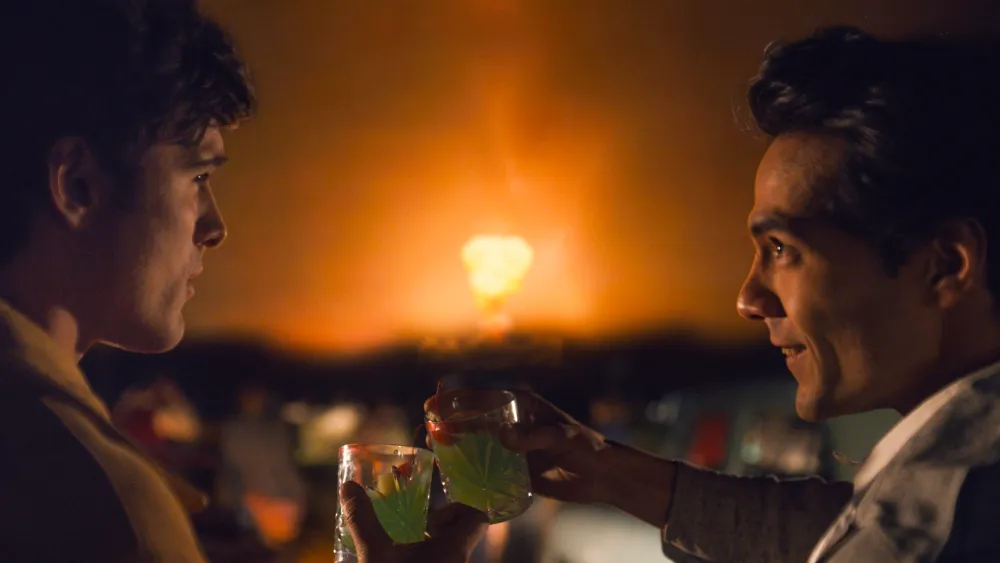
Poulter, who seems to be everywhere these days, recently in “Warfare” and “Death of a Unicorn,” is saddled with an underdeveloped character and being boxed in as the cuckolded husband. And would you believe he and Elordi are brothers?
After taking risks, Edgar-Jones’ character is mired in blandness. The actress, feisty in last year’s “Twisters” and superb in “Where the Crawdads Sing,” makes Muriel sympathetic but needed to give her more dimension. It’s a letdown.
Tell us something we don’t know and would like to know and not foist half-baked performative junk at us and call it alluring. “On Swift Horses” goes in circles and limps to the finish line with a clumsy ending that doesn’t answer any questions raised. It’s a safe bet you can skip this gussied-up charade.
“On Swift Horses” is a 2025 drama directed by Daniel Minahan and starring Jacob Elordi, Daisy Edgar-Jones, Will Poulter, Diego Calva and Sasha Calle. Its run time is 1 hour, 57 minutes, and it’s rated R for sexual content, nudity and some language. It opens in theatres April 25. Lynn’s Grade: D+
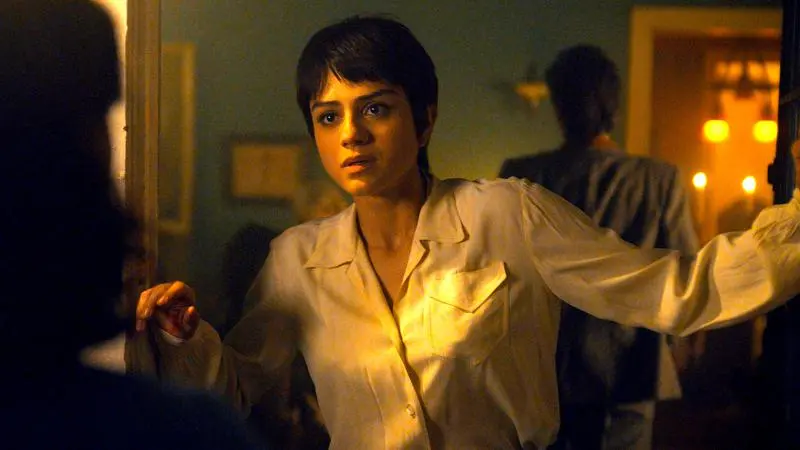

Lynn (Zipfel) Venhaus has had a continuous byline in St. Louis metro region publications since 1978. She writes features and news for Belleville News-Democrat and contributes to St. Louis magazine and other publications.
She is a Rotten Tomatoes-approved film critic, currently reviews films for Webster-Kirkwood Times and KTRS Radio, covers entertainment for PopLifeSTL.com and co-hosts podcast PopLifeSTL.com…Presents.
She is a member of Critics Choice Association, where she serves on the women’s and marketing committees; Alliance of Women Film Journalists; and on the board of the St. Louis Film Critics Association. She is a founding and board member of the St. Louis Theater Circle.
She is retired from teaching journalism/media as an adjunct college instructor.

